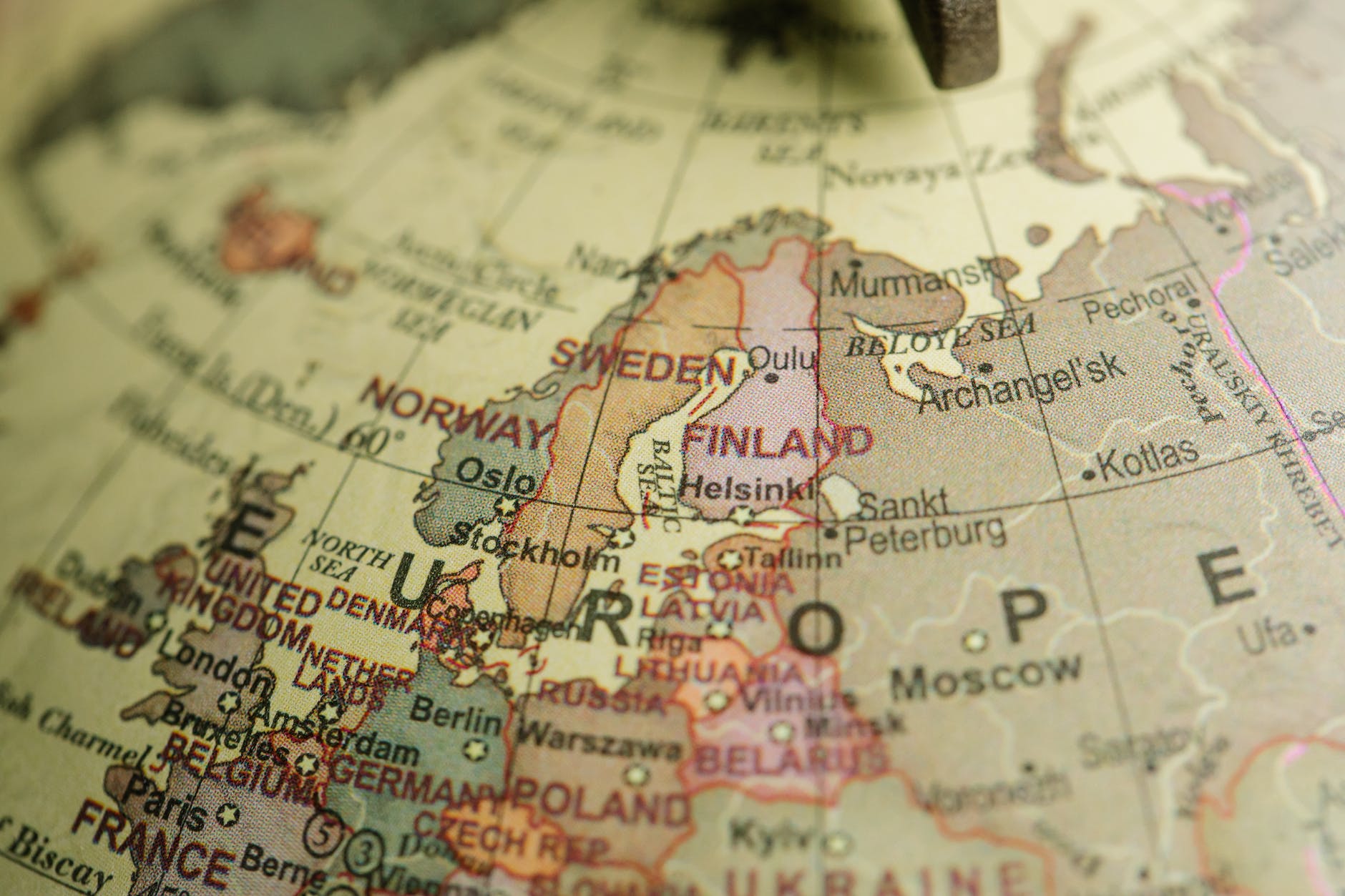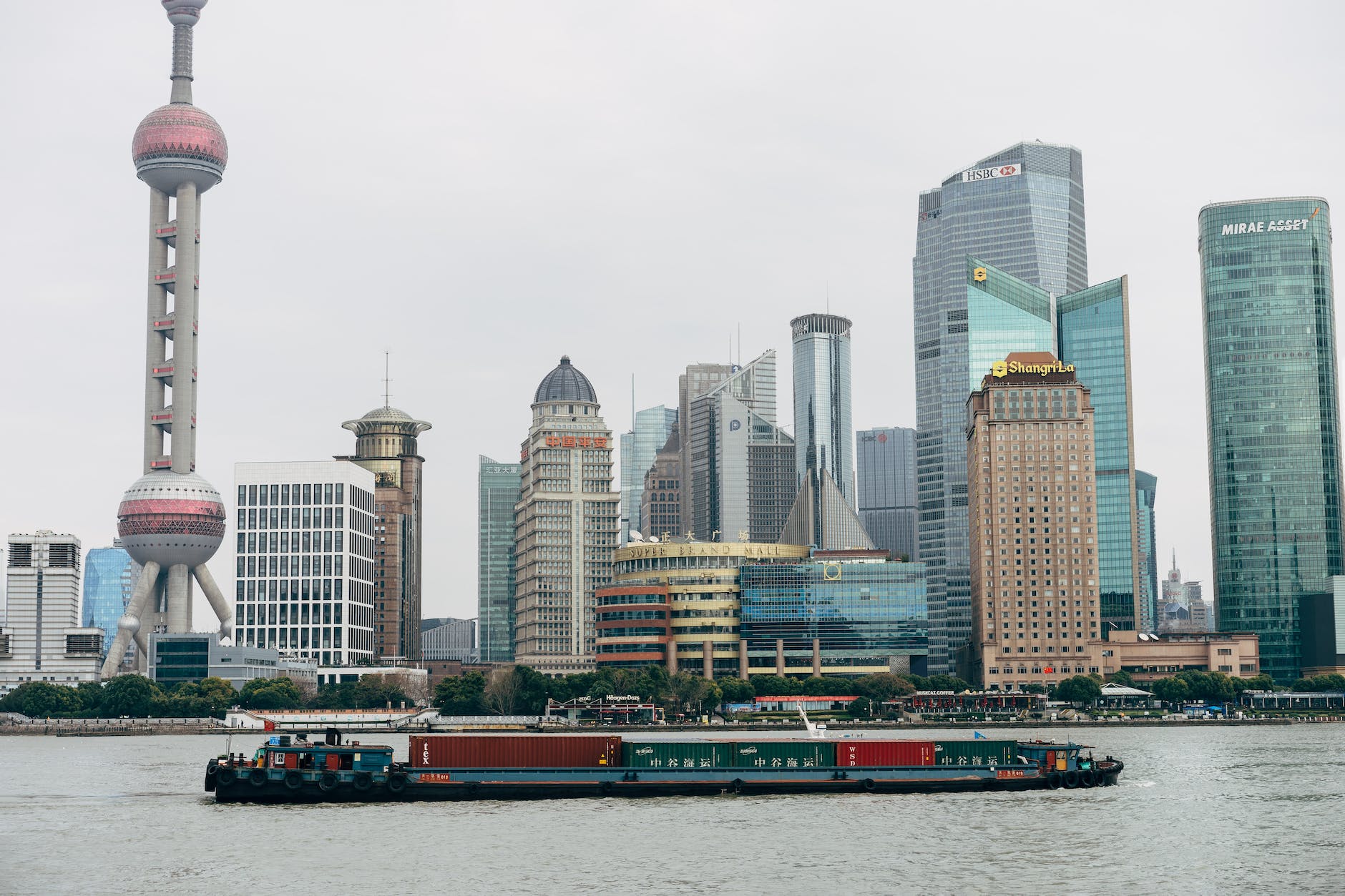Is globalization an ideology? This question might puzzle many, but the truth is that globalization, also known as imperial globalism, is a complex phenomenon with ideological dimensions. It goes beyond mere economic integration and encompasses political and cultural aspects on a global scale. In fact, the ideology of globalization, influenced by globalists and cosmopolitanism, has shaped the modern world in significant ways, influencing societies worldwide through liberalized trade.
Understanding globalization as a political ideology, such as imperial globalism, is crucial for analyzing its impact on societies in the field of political sociology. By examining the underlying beliefs and principles of these political ideologies, we gain insight into how they affect economies, politics, and cultures globally. This understanding allows us to delve deeper into the complexities of our interconnected world today.
So, let’s explore the fascinating concept of globalization as a globalist ideology and uncover its profound influence on our ever-changing world of imperial globalism.
Defining Globalization as an Ideology
Globalization, as a political ideology, is the belief in interconnectedness and interdependence among nations. It is a concept that has gained prominence in the late 20th century, shaping the way we perceive and interact with the world. This ideology promotes the idea of free movement of goods, capital, and information across borders, aiming to create a globalized society where barriers are minimized. The study of globalization falls within the realm of political sociology, which examines the influence of political ideologies on society. Imperial globalism is one such ideology that seeks to exert dominance and control over other nations. In analyzing political ideologies, researchers often look for ideological markers that can help identify and categorize different belief systems.
At its core, globalization as a political ideology emphasizes free markets and deregulation. Advocates argue that by opening up borders and facilitating international trade, economies can grow at a faster pace, leading to increased prosperity for all involved parties. They believe that competition on a global scale encourages innovation, efficiency, and specialization, supporting the theory of imperial globalism.
One of the key aspects of imperial globalism is the removal or reduction of trade barriers in markets, such as tariffs and quotas, between countries. Proponents argue that by allowing goods to flow freely across borders, global citizens have access to a wider range of products at competitive prices. This can lead to increased consumer choice and improved living standards.
Globalization, also known as imperial globalism, is an ideology that encourages the free movement of capital across national boundaries and markets. This means that individuals and corporations can invest their money wherever they see fit without facing excessive regulations or restrictions. Supporters argue that this fosters economic growth by attracting foreign investment and promoting entrepreneurship, ultimately contributing to the establishment of a new world order among countries.
Moreover, information flows between countries play a crucial role in globalization as an ideology. The advent of technology has made it easier than ever before for people around the world to connect and share ideas instantaneously. The internet, a powerful tool for communication, enables cross-cultural exchanges and fosters understanding between nations. Free markets allow for the exchange of goods and services across borders, promoting economic growth and cooperation. Additionally, images can be shared globally, providing visual representations of different cultures and experiences. Whether it’s a celebration or a political rally, parties are a way for people from diverse backgrounds to come together and engage in social interactions.
Critics of globalization as an ideology raise concerns about its impact on local economies and cultural identities in countries. They argue that unrestricted trade in free markets can lead to job losses in certain industries when faced with competition from lower-cost producers abroad. Some fear that homogenization may occur due to the dominance of Western values propagated through global media channels in the new world order.
Market Globalism: An Ideological Perspective
Market globalism is an ideology that centers around the promotion of free trade and liberalized markets on a global scale. It emphasizes the importance of reducing barriers to international commerce, such as tariffs or quotas, in order to foster economic growth and development worldwide. This perspective aligns closely with neoliberal economic policies, which prioritize market forces as the driving factor behind economic progress. This ideology is relevant for all countries and can be seen in the economic policies of the United States. Additionally, party politics often play a role in shaping these policies. Furthermore, images of global trade and commerce are often associated with market globalism.
One of the key tenets of market globalization ideology is its focus on advocating for free trade in the world. Proponents argue that by eliminating restrictions and allowing goods and services to flow freely across borders, countries can benefit from increased efficiency, specialization, and access to a wider range of products. They believe that this leads to overall economic prosperity by encouraging competition and innovation in the markets.
Reducing barriers to international commerce is another crucial aspect of market globalization ideology. Tariffs and quotas are seen as hindrances to economic growth, as they artificially inflate prices and limit consumer choices in the world. Advocates of political ideology argue that by removing these obstacles, businesses can expand their markets globally, leading to increased investment opportunities and job creation. These changes also involve the use of images.
Market globalism emphasizes the role of market forces in driving economic growth and development worldwide. Proponents argue that unhindered markets in Cambridge have the ability to allocate resources efficiently and respond dynamically to changing conditions. They believe relying on market mechanisms rather than centralized planning allows for more flexibility in adapting to evolving circumstances, such as party planning or capturing images.
Neoliberal economic policies often align closely with market globalism, promoting free markets and limited government intervention. These policies create an environment conducive to entrepreneurship, innovation, and investment. Supporters argue that they encourage party and economic growth worldwide. Additionally, they emphasize deregulation, privatization, and fiscal discipline.
Critics of market globalism raise concerns about its potential negative impacts on economic ideology and the world markets. They argue that unrestricted free trade can lead to job losses in certain industries due to competition from lower-cost countries or outsourcing practices. Some contend that reduced regulations may result in environmental degradation or exploitation of workers in less regulated regions. Party interests must be considered when evaluating the effects of market globalism.
Justice Globalism: Analyzing the Ideological Aspect
Justice globalism is an ideology that places a strong emphasis on social justice, equality, and human rights within a global context. It stands as a critique of market-driven globalization, arguing that it exacerbates inequality and exploitation in free markets. The proponents of justice globalism call for a fairer distribution of resources and opportunities worldwide, while also advocating for environmental sustainability and labor rights. The party supports justice globalism’s vision for a more equitable world.
At its core, justice globalism seeks to address the imbalances created by traditional forms of globalization in the world. It recognizes that the current system often benefits those in power at the expense of marginalized communities. By prioritizing social justice, equality, and human rights, justice globalists aim to rectify these disparities and promote economic ideology that supports free markets.
One key aspect of this ideology is its focus on fair distribution of resources and opportunities globally in free markets. Justice globalists argue that wealth and power should not be concentrated in the hands of a few party, but rather shared more equitably among nations and individuals. They advocate for policies that promote economic inclusivity and reduce poverty rates worldwide.
Furthermore, justice globalism highlights the importance of environmental sustainability in the world. Proponents of this economic ideology argue that unchecked globalization, driven by free markets, has led to detrimental consequences such as climate change and ecological degradation. They believe that protecting the environment is essential not only for present generations but also for future ones. This perspective calls for measures to mitigate environmental harm caused by industrial activities and promotes sustainable practices at both local and international levels.
Labor rights also feature prominently within the ideology of justice globalism, advocating for stronger regulations in free markets to protect workers’ rights in industries around the world. Justice globalists push for fair wages, safe working conditions, and the right to unionize, ensuring that all individuals have access to decent work without exploitation or discrimination.
Relationship between Ideology and Globalization
The relationship between ideology and globalization in the world markets is a complex and multifaceted one. The ideologies associated with globalization shape how it is understood, implemented, and critiqued by different actors in the world markets. These ideologies influence policy decisions related to trade agreements or international cooperation efforts in the world markets.
Different ideological perspectives play a significant role in shaping the understanding of globalization in today’s markets. For example, proponents of neoliberalism view globalization as an opportunity for economic growth and development through free trade and liberalization of world markets. They argue that increased global integration leads to greater efficiency, innovation, and prosperity for all nations involved in the world. On the other hand, critics of neoliberalism argue that it perpetuates inequality, exploitation of labor, and environmental degradation in the world.
Similarly, socialist ideologies offer a contrasting perspective on the global markets. Socialists often criticize the capitalist underpinnings of globalization that prioritize profit maximization over social welfare. They advocate for more equitable distribution of wealth and resources across nations in the world through mechanisms such as fair trade policies or international aid programs.
The relationship between ideology and globalization in the markets is not static but evolves over time based on societal changes and political shifts. For instance, during periods of economic downturns or rising inequality in the markets, there may be a shift towards protectionist ideologies that prioritize domestic industries over international trade. This can lead to the imposition of tariffs or quotas on imports in the markets in an attempt to safeguard national interests.
Conversely, during times of relative stability or when global challenges require collective action, there may be a resurgence in ideologies promoting international cooperation and multilateralism in markets. This can be seen in efforts to address climate change or combat transnational issues such as terrorism or pandemics in markets.
It is important to note that ideological perspectives in the markets are not mutually exclusive; rather they exist along a spectrum with varying degrees of emphasis on different aspects of globalization. Some actors may adopt hybrid approaches that combine elements from multiple ideologies depending on their specific goals or circumstances in the markets.
Critiques of Globalization as an Ideological Concept
Critics argue that globalization’s ideological focus on markets neglects social welfare concerns. The emphasis on free trade and the unrestricted movement of capital often leads to a race to the bottom in markets, where corporations prioritize profit over the well-being of workers and local communities. This can result in exploitative labor practices, inadequate wages, and poor working conditions in markets. Critics contend that globalization should not solely revolve around economic growth but also address social justice issues in markets.
Some view globalization as a tool for powerful nations to exploit weaker ones, perpetuating global inequalities. Developing countries often find themselves at a disadvantage when negotiating trade agreements with dominant players in the global economy. This power imbalance can lead to unequal terms that favor wealthy nations, allowing them to extract resources and cheap labor from poorer countries without providing equitable benefits in return. Critics argue that this dynamic reinforces existing disparities between nations and exacerbates poverty and underdevelopment.
Critics also highlight the loss of cultural diversity and local autonomy due to globalization. As multinational corporations expand their reach across borders, they bring with them standardized products and homogenized cultural experiences. Local industries struggle to compete against these global giants, leading to the erosion of traditional crafts, languages, and ways of life. Moreover, critics argue that globalization promotes a consumerist culture that undermines local values and traditions.
The environmental impact of globalization is another concern raised by critics. The increased movement of goods across long distances contributes significantly to carbon emissions and pollution levels. Global supply chains often prioritize cost efficiency over sustainability, resulting in excessive resource consumption and waste generation. Critics emphasize the need for environmentally conscious policies within globalized systems to mitigate these detrimental effects on our planet.
Role of Globalists in Promoting Globalization
Globalists, as the name suggests, are individuals or groups who actively advocate for globalization as an ideology. They firmly believe in the benefits of interconnectedness and champion policies that promote international cooperation, open markets, and global governance structures.
Politicians, business leaders, and academics often make up the ranks of globalists. These influential figures play a crucial role in shaping the discourse surrounding globalization. They utilize their positions to push for policies that encourage economic integration and cultural exchange on a global scale.
One way in which globalists exert their influence is through the formation of international organizations. For instance, the World Trade Organization (WTO) was established to regulate trade between nations and ensure fair competition. This organization plays a pivotal role in promoting globalization by facilitating negotiations on reducing trade barriers and resolving disputes among member countries.
Similarly, the United Nations (UN) serves as a platform where globalist ideals can be pursued. The UN aims to maintain peace and security worldwide while fostering cooperation among nations on various issues such as human rights, climate change, and sustainable development. Through its specialized agencies like UNESCO or WHO, it promotes collaboration across borders to tackle shared challenges.
Globalists argue that globalization brings numerous benefits to societies around the world. By encouraging free trade and removing barriers to commerce, they believe that economies can grow more rapidly and efficiently. This increased economic activity can lead to job creation, higher living standards, and improved access to goods and services for people across different nations.
Moreover, globalists emphasize that globalization fosters cultural exchange and understanding among diverse communities. Through increased interaction between people from different backgrounds, they assert that prejudices can be challenged while mutual respect is nurtured.
Critics of globalization often point out potential drawbacks such as income inequality or loss of national sovereignty. However, globalists argue that these concerns can be addressed through proper regulation and inclusive policies rather than abandoning globalization altogether.
Conclusion
In conclusion, globalization can be considered an ideology that encompasses various perspectives and approaches. It has evolved over time, with different ideologies emerging to shape the understanding and implementation of globalization.
Market globalism is one such ideological perspective, emphasizing the importance of free markets and deregulation in promoting economic integration on a global scale. On the other hand, justice globalism focuses on addressing social inequalities and promoting fairness in the global system.
The relationship between ideology and globalization is complex. Ideologies influence how globalization is perceived, understood, and pursued by different actors. They shape policies, actions, and debates surrounding globalization’s impact on societies.
However, globalization as an ideological concept is not without its critiques. Critics argue that it often prioritizes economic interests over social welfare and exacerbates inequality between nations. Concerns have been raised about cultural homogenization and loss of local autonomy due to globalization.
Globalists play a significant role in promoting globalization as an ideology. They advocate for increased international cooperation and integration across various sectors such as trade, finance, and governance. Globalists believe that embracing interconnectedness can lead to shared benefits for all nations involved.
To better understand the implications of globalization as an ideology, it is crucial to consider multiple perspectives and engage in informed discussions. This requires critically evaluating both the positive aspects and potential drawbacks associated with increased interconnectedness.
In conclusion, while globalization can be seen as an ideology with diverse interpretations, it remains a powerful force shaping our world today. As individuals navigating this globalized landscape, it is essential to stay informed about its complexities and actively participate in discussions surrounding its impacts on society.
FAQs
How does globalization impact employment opportunities?
Globalization has led to both positive and negative effects on employment opportunities. While it has created new job prospects by opening up markets globally, it has also resulted in job losses due to outsourcing or automation in certain industries.
Does globalization benefit all countries equally?
Globalization does not benefit all countries equally. Developed nations often have more resources and capabilities to take advantage of global markets, while developing countries may face challenges in competing on an equal footing.
What role do multinational corporations play in globalization?
Multinational corporations play a significant role in globalization by expanding their operations across borders, facilitating the flow of goods, services, and capital. They contribute to economic growth but can also face criticism for exploitative practices and unequal distribution of benefits.
How does globalization impact cultural diversity?
Globalization has both positive and negative impacts on cultural diversity. While it allows for the exchange of ideas and cultural influences, there is also a risk of homogenization as dominant cultures overshadow local traditions.
Can individuals influence the course of globalization?
Individuals can influence the course of globalization through various means such as activism, advocacy, or consumer choices. Engaging in informed discussions, supporting fair trade practices, and promoting sustainable development are some ways individuals can make a difference.
Is there a way to strike a balance between economic growth and social welfare in a globalized world?
Finding a balance between economic growth and social welfare in a globalized world is challenging but not impossible. It requires proactive policies that prioritize equitable distribution of benefits, investment in education and healthcare systems, and fostering inclusive economic opportunities for all.
Remember to provide accurate answers when writing your own FAQs based on the context of addressing the global imaginary. It is important to consider the perspective of a global citizen.



